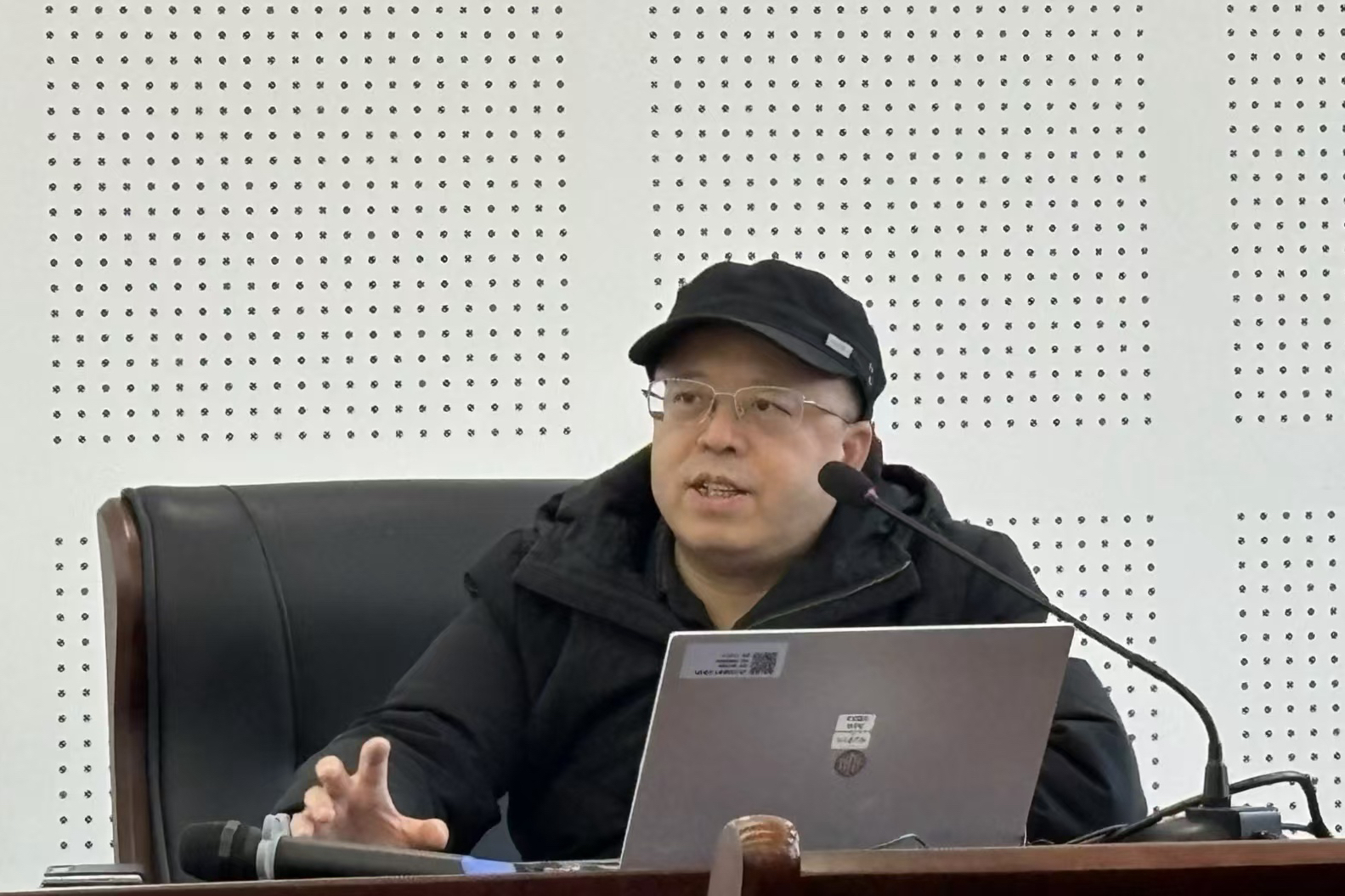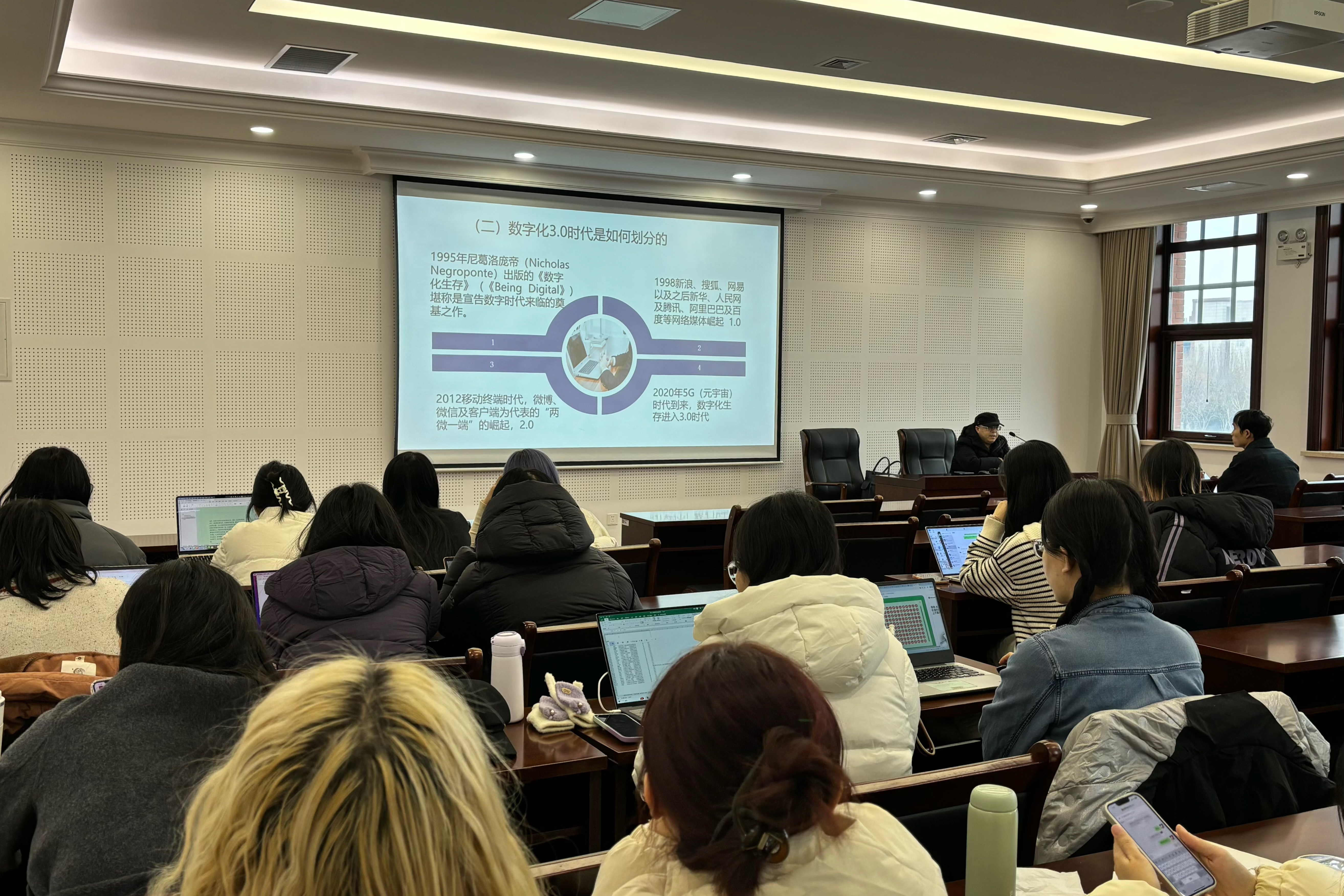On the afternoon of December 12, Professor Zhong Shenjun from the School of Journalism and Communication gave an academic lecture on the theme of “The Changing and Unchanging Aspects of Journalism and Communication in the Digital Age 3.0” as part of the “Appointment with Mentors - Teacher-Student Exchange Afternoon Tea” activity in Room 215, Xiushan Hall. More than 30 graduate and undergraduate students from the School of Journalism and Communication attended the lecture.
Professor Zhong explored in depth the transformation and perseverance of journalism and communication in the Digital Age 3.0 from five perspectives: the trends of the times, dramatic ecological changes, the changing and unchanging aspects of journalism and communication, and how to achieve innovation while upholding core values. He detailed how technological innovation has reshaped the channel of information dissemination and revealed the opportunities and challenges in the changing situation, providing a forward-looking perspective for the students of the School of Journalism and Communication.

Professor Zhong started the lecture with an introduction to how to divide the digital age into different stages. From the publication of Nicholas Negroponte's Being Digital in 1995, heralding the arrival of the Digital Age, to the rapid rise of online media such as Sina, Sohu, and NetEase in 1998, marking the entry of the Digital Age 1.0, to the rapid development of “Weibo, WeChat, and media APPs” in 2012, leading to the Digital Age 2.0 characterized by mobile terminals, and finally to the emergence of 5G technology in 2020, marking the arrival of the Digital Age 3.0. Professor Zhong pointed out that since the explosive development of 5G technology in 2020, with blockchain, virtual reality technology, and artificial intelligence as the three underlying technologies, three global phenomena of NFT, Metaverse, and ChatGPT have emerged, which will significantly impact the development of a wide range of industries.
Afterwards, Professor Zhong explained the transformation of information technology trends and media evolution trends in the digital age with the development of the times. He believes that with the accelerating pace of technological progress, artificial intelligence will face three singularities: social singularity, economic singularity, and technological singularity. In this context, traditional communication models and theories have undergone disruptive innovation. Taking Li Ziqi, Li Jiaqi, and Li Yizhou as examples, he illustrated the value created by personal IP brand communication and pointed out that in the new ecological environment, the operational procedures, reporting areas, news reporting styles, and perspectives on communication have all undergone significant changes, but the essential nature of journalism and communication as a public instrument - “shouldering social responsibility, writing influential articles” - remains unchanged.

In conclusion, Professor Zhong discussed how news media should innovate while upholding core values, and envisioned the future development of personalized media. He pointed out that as media reporters and witnesses of the times, we should align ourselves with the times, history, peace and trends. The lecture greatly enlightened the participating students and inspired their reflections on the transformation and perseverance of journalism and communication in the Digital Age 3.0.


